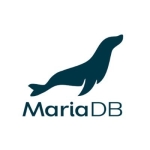What is our primary use case?
Because I worked with various organizations, most of the time we used it for government and other centers, such as managing transport systems.
What is most valuable?
It performs quite well.
In general, Oracle is quite good. It's a large database that houses many applications.
In terms of backup Basically, I believe that will depend, particularly on backup and those components, on the knowledge that you have. However, if you have the proper knowledge, it should not be a problem for you. The database does not cause problems when properly configured and best practices of database administration are followed.
When compared to others such as Postgres, Oracle is a very good database.
Oracle Database is easy to use.
What needs improvement?
The only issue was the same as with the EDS licenses. When you try to tell customers that you can critically patch their system, they always complain about the cost. In terms of pricing, I believe Oracle should be aware of this fact. I'm not sure if it's because it's only happening here in Africa, but some of the guys I spoke with prefer to patch all the time. When you ask people in this town, "Look guys, can you critically patch the system?" they will tell you it's too expensive.
That, I believe, is a major issue. But with that solution, I'm not sure how it can be resolved, but I think most people will be willing to always do patches on a monthly, quarterly basis, as Oracle recommends.
They can increase the number of products available in free accounts for people to try. So many more people will be able to migrate to the cloud.
For how long have I used the solution?
I have been using Oracle Database for approximately five years.
We are using both old and new versions.
What do I think about the scalability of the solution?
Oracle Database is quite scalable.
They have a large number of options depending on the needs of the organization, allowing any organization to deploy according to their requirements. You can add or remove items as time allows, it's very scalable.
In our organization, we have more than 100, but less than 1,000 users.
Recently, I proposed the migration from on-premises to the cloud. I've noticed that alternatives are bringing a lot in the business, particularly in the cloud spectrum. Convincing customers to try to migrate to the cloud today is another task. It's more like there's something frightening there. I'm not sure what they're afraid of, but it's a matter of education and demonstration. I can download Oracle Database and experiment with it on my own, as long as I'm not using it for commercial purposes. I can do it if I try it on my own.
I believe they should increase that even in the cloud. They have an Oracle Always Free account on the cloud, but it has a time limit, of a month. They will give you one month's free package for you to try. I have tried it many times. What I've noticed is that they should add more products to the Always Free account so that people, particularly on our continent, who are still skeptical of the cloud, are not left out.
They believe they will inquire as to where we will store our information. How do you know you're getting access to our data? As a result, there is still a lot of information that needs to be taught. I think the best thing Oracle could do is try to improve on that so that most people can keep trying and see that there's nothing to be skeptical about.
How are customer service and support?
Technical support is quite good.
How was the initial setup?
The initial setup is quite easy. In part, it is easy depending on the scope of the project. Maybe it's different for each project. For example, if you need to set up a rec, you need to know what is required, because this is a single database.
It took a few hours to deploy.
What about the implementation team?
For my personal use, I completed the installation myself.
When deploying for production, I worked with a partner who had a specialized team of system administrators and application developers.
This solution is only deployed and maintained by me.
What's my experience with pricing, setup cost, and licensing?
It's been quite a long time since I looked into the price.
What other advice do I have?
I believe they should also devote more time to learning Oracle. They will also notice that Oracle is not difficult to install or administer if best practices are followed. And, depending on your goals, I believe anyone can do it. Because Oracle Database has so many features, you can do audit vaults and data guides on it, depending on how you want to run your business.
Another thing I would recommend is that people be aware that Oracle has opened its website for people to sign up for free and then download the software for practice, study, or training purposes only. If you intend to use it for production purposes, that is when you should purchase a license.
Because of the prices, I would rate Oracle Database a nine out of ten, otherwise, I think that Oracle is still the best.
Which deployment model are you using for this solution?
On-premises
Disclosure: My company does not have a business relationship with this vendor other than being a customer.


















